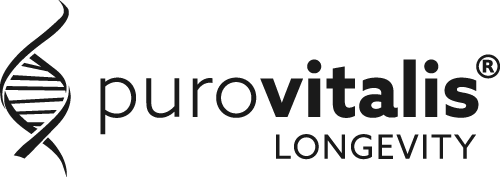
table of contents
The role of dietary protein
Dietary protein is a cornerstone of human nutrition, and it drives critical physiological processes.
Protein is composed of amino acids, which are essential for building and repairing tissues: not just muscles, but even skin and all of your organs.
The protein you consume is broken down into amino acids during digestion; the amino acids are then absorbed in the small intestine and used for protein synthesis or energy production.
Protein is essential for maintaining and growing muscles, supporting recovery, and enhancing strength. This is crucial for exercise and age-related muscle loss – see this post on fighting sarcopenia with exercise.
What is Sarcopenia?
Gradual loss of muscle mass, strength, and performance that often comes with aging. It can be accelerated by factors such as poor nutrition, inactivity, or chronic illness. Since strong, healthy muscles are closely tied to mobility, independence, and overall vitality, preventing or slowing sarcopenia plays an important role in supporting healthy aging and longevity.
The functions of dietary protein
The protein you consume also forms enzymes and hormones, such as insulin and hemoglobin, which regulate metabolism, oxygen transport, and immune function. Additionally, protein plays a crucial role in bone health by promoting collagen formation and facilitating calcium absorption, thereby reducing the risk of fractures.
In the immune system, proteins create antibodies and signaling molecules like cytokines, bolstering defense against pathogens.
Protein also maintains fluid balance by producing albumin, which regulates blood volume and prevents edema.
When carbohydrates or fats are scarce, amino acids can even be converted to glucose via gluconeogenesis, though this is a secondary role of dietary protein.
Protein influences satiety by slowing gastric emptying and triggering hormones such as peptide YY, which helps manage weight better.
In terms of brain health, protein supports neurotransmitter synthesis, with amino acids like tryptophan forming serotonin, which impacts mood and cognition.
Let’s go over each function of dietary protein in detail.
Protein and aging – you need more, not less
Protein plays a dual role in aging because it influences both longevity (lifespan) and healthy aging (healthspan) through its effects on muscle maintenance, metabolic regulation, and cellular processes.
Protein’s main anti-aging effects lie in the prevention of sarcopenia, improved bone density, and lasting strength.
Since adequate protein consumption also supports immune function and other processes, you need to make sure you’re getting enough as you age.
Older adults (65 years and older) require at least 1.6 grams of protein per kilogram of body weight per day, and this can increase to 2 grams per kilogram of body weight if they engage in resistance training.
Even though high protein intake activates mTOR and may, in theory, sometimes accelerate aging by promoting cellular senescence and oxidative stress, recent research indicates that you should worry about undereating protein rather than overeating it.
With aging, the most important thing related to protein is the building and preservation of muscle mass, and to optimize that you need to get at least 1.6 g/kg.
In general, the idea that you can eat too much protein and thus cause health issues has dubious origins. After all, it’s pretty hard to accidentally overeat protein, so you can safely prioritize your protein portion with every meal.
Protein and muscle mass
Protein intake and muscle mass are intricately linked in the context of aging.
First and foremost, adequate protein intake is essential for combating sarcopenia, the age-related loss of muscle mass and strength that accelerates after age 65.
Sarcopenia impairs mobility, increases fall risk, and reduces quality of life. Protein provides amino acids, particularly leucine, which stimulates muscle protein synthesis (MPS) via the mTOR pathway.
Aging reduces the efficiency of MPS, which is why you may want to consume more protein, as we already wrote: closer to 2 g per kg of your bodyweight per day for older adults.
Combining protein with resistance exercise further enhances MPS, preserving muscle mass and function, which supports protein and longevity by reducing frailty and improving metabolic health.
Balanced protein consumption for anti-aging involves spreading intake across meals (20–30 g/meal) to optimize MPS.
Protein and skin
Protein and skin health are closely connected in aging, as proteins are vital for maintaining skin structure, elasticity, and repair rate. All of those decline with age.
Skin aging, marked by wrinkles, thinning, and reduced resilience, is influenced by collagen and elastin, structural proteins that provide firmness and flexibility.
Dietary protein supplies amino acids like glycine and proline, essential for collagen synthesis, which slows after age 30, contributing to visible aging.
Gelatin and longevity
Gelatin, a protein derived from collagen (found in animal bones, skin, and cartilage), is rich in amino acids like glycine, proline, and hydroxyproline, which are critical for collagen synthesis and tissue repair.
Gelatin is an “incomplete” protein because it lacks the essential amino acid tryptophan and is deficient in other essential amino acids like isoleucine, threonine, and methionine. However, gelatin is good for collagen production because it is derived from collagen.
If you’re worried about getting the right amount of collagen, consider our balanced Rewind Liquid Collagen supplement instead of gelatin.
Protein and brain health
Dietary protein supports cognitive function, neurotransmitter synthesis, and neuroprotection mechanisms. Proteins provide amino acids like tryptophan, tyrosine, and phenylalanine, which are precursors to neurotransmitters such as serotonin, dopamine, and norepinephrine, regulating mood, memory, and cognition.
These processes decline with age, increasing risks of neurodegenerative diseases like Alzheimer’s.
Consuming enough supports brain health by maintaining neuronal integrity. Branched-chain amino acids (BCAAs) like leucine, found in beef, whey, or soy protein, enhance brain-derived neurotrophic factor (BDNF), promoting neuroplasticity and memory.
Animal vs plant-based protein
The debate over animal vs. plant-based protein for longevity hinges on their amino acid profiles, nutrient content, and impacts on aging.
Animal-based protein
Animal proteins (meat, fish, eggs, dairy) are complete proteins, providing all nine essential amino acids (EAAs) in optimal ratios, particularly leucine, which drives muscle protein synthesis.
Moreover, fatty fish (e.g., salmon) supply omega-3 fats (DHA/EPA), which is known to reduce inflammation and support brain health.
Keep in mind, though, that high intake of processed meats may increase inflammation and cancer risk, potentially reducing life expectancy. Excessive animal protein also elevates mTOR and IGF-1, linked to accelerated cell aging.
Plant-based protein
Plant proteins (soy, lentils, nuts) are often incomplete because they lack sufficient EAAs like leucine or methionine, so they require careful combination.
The good thing about plant proteins, though, is that their lower methionine content may extend lifespan by reducing mTOR signaling.
Also, plant-based protein foods are usually rich in fiber and antioxidants, so they may reduce cardiovascular disease risks and improve your gut health.
Wrap up
Animal proteins provide complete amino acids but may accelerate aging if consumed in excess, while plant proteins support longevity through lower methionine, fiber, and antioxidants. A balanced mix of lean meat, fish, and plant sources is best for long-term health.
Is protein supplementation necessary?
Protein supplements, such as whey or plant-based powders, are often used to meet protein needs, but their necessity and impact on protein and healthy aging vary.
For most active adults, dietary protein from whole foods (e.g., eggs, fish, legumes) meets the amount suggested by recent research (around 1.6 g/kg/day), which makes supplementation unnecessary unless you’re for some reason trying to reduce the volume of food you consume.
In older adults (65+), protein requirements may rise up to 2-2.2 g/kg/day, and protein powders can shine here. Whey protein is particularly relevant due to its high leucine content, and egg white protein powder is a great alternative for those who can’t tolerate whey well.
As a side note, to maximize protein absorption and accentuation, you need to make sure your digestion and gut health are optimal.
Here are a few suggestions from our product range to get the most anti-aging benefits from your dietary protein consumption:
GlyNAC – the amino acid Glycine + N-Acetylcysteine improves performance and cell energy production;
Spermidine – Spermidine improves cellular efficiency and may optimize amino acid utilization for MPS, thus fighting skeletal muscle atrophy.
NMN (Nicotinamide Mononucleotide) – NMN boosts NAD+ levels, which decline with age and impair energy metabolism, including protein metabolism and aging. Higher NAD+ supports mitochondrial function, enhancing energy for MPS and amino acid transport.
References
- Paddon-Jones D, Westman E, Mattes RD, Wolfe RR, Astrup A, Westerterp-Plantenga M. Protein, weight management, and satiety. Am J Clin Nutr. 2008 May;87(5):1558S–1561S. doi:10.1093/ajcn/87.5.1558S
- Deutz NEP, Bauer JM, Barazzoni R, Biolo G, Boirie Y, Bosy-Westphal A, et al. Protein intake and exercise for optimal muscle function with aging: Recommendations from the ESPEN Expert Group. Clin Nutr. 2014 Dec;33(6):929–936. doi:10.1016/j.clnu.2014.04.007
- Levine ME, Suarez JA, Brandhorst S, Balasubramanian P, Cheng C-W, Madia F, et al. Low protein intake is associated with a major reduction in IGF-1, cancer, and overall mortality in the 65 and younger but not older population. Cell Metab. 2014 Mar 4;19(3):407–417. doi:10.1016/j.cmet.2014.02.006
- Birkenbach K, Attia P. Determining optimal protein intake from data, not dogmatism. Nutrition. 2025 Aug 23.
- French SJ, Kanter M, Maki KC, Rust BM, Allison DB. The harms of high protein intake: conjectured, postulated, claimed, and presumed, but shown? Am J Clin Nutr. 2025 Jul;122(1):9–16. doi:10.1016/j.ajcnut.2025.05.002
- Rennie MJ, Tipton KD. Leucine: A nutrient “trigger” for muscle anabolism, but what more? J Physiol. 2012 May;590(Pt 9):2065–2066. doi:10.1113/jphysiol.2012.230631
- Bauer J, Biolo G, Cederholm T, Cesari M, Cruz-Jentoft AJ, Morley JE, et al. Evidence-Based Recommendations for Optimal Dietary Protein Intake in Older People: A Position Paper From the PROT-AGE Study Group. J Am Med Dir Assoc. 2013 Aug;14(8):542–559. doi:10.1016/j.jamda.2013.05.021
- He X, Gao X, Guo Y, Xie W. Research Progress on Bioactive Factors against Skin Aging. Int J Mol Sci. 2024 Mar 28;25(7):3797. doi:10.3390/ijms25073797
- Lieberman HR. Amino Acid and Protein Requirements: Cognitive Performance, Stress, and Brain Function. In: The Role of Protein and Amino Acids in Sustaining and Enhancing Performance. Washington (DC): National Academies Press (US); 1999.
- Nasrallah P, Abou Haidar E, Stephan J, El Hayek L, et al. Branched-chain amino acids mediate resilience to chronic social defeat stress by activating BDNF/TRKB signaling. Neurobiol Stress. 2019 May;11:100170. doi:10.1016/j.ynstr.2019.100170
- Navik U, Sheth VG, Khurana A, Jawalekar SS, Allawadhi P, Gaddam RR, et al. Methionine as a double-edged sword in health and disease: Current perspective and future challenges. Ageing Res Rev. 2021 Dec;72:101500. doi:10.1016/j.arr.2021.101500
- McCarty MF, Barroso-Aranda J, Contreras F. The low-methionine content of vegan diets may make methionine restriction feasible as a life extension strategy. Med Hypotheses. 2009 Feb;72(2):125–128. doi:10.1016/j.mehy.2008.06.048
- Fan J, Yang X, Li J, Shu Z, Dai J, Liu X, et al. Spermidine coupled with exercise rescues skeletal muscle atrophy from D-gal-induced aging rats through enhanced autophagy and reduced apoptosis via AMPK-FOXO3a signal pathway. Oncotarget. 2017 Feb 25;8(11):17475–17490. doi:10.18632/oncotarget.15728

Track 50+ health metrics with AI-powered accuracy. Start your free trial today and take control of your wellness journey!

longevity tips best exercises nutrition diets healthy lifestyle
The art of living well a life that’s not measured by years alone, but by experiences, health, and joy!












